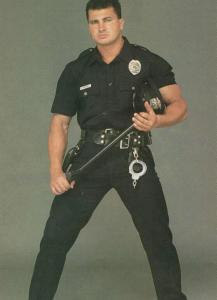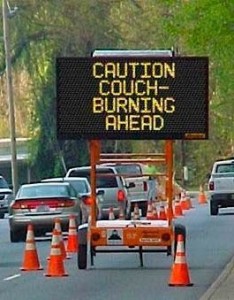We’re talking really dangerous dumb decisions that continue to make me humble.
I’m talking here about seriously dumb decisions, not those minor regrets like that time in 1970 when Esquire magazine assigned me to fly to New Mexico where director Monte Hellman was filming Two-Lane Blacktop, about street-racing. Among the actors was a pair of musicians, James Taylor as a driver, and Dennis Wilson as a mechanic. They both agreed to be interviewed, besides screenwriter Rudy Wurlitzer and others.
During a conversation with Taylor about not laughing at jokes, he said, “My brother once told me a joke that made me laugh.”
“Wait, don’t tell me now,” I said. “Let’s save it for the interview.”
However, I was supposed to reveal behind the scenes of making the movie, but I learned that there were a couple of violations of law: a few members of the cast had been tripping on magic mushrooms; and a 17-year-old actress, Laurie Bird, who played “The Girl,” had sex with two members of the crew. Nine years later she would commit suicide.
Anyway, I decided not to write the article — I was a reporter, not a snitch — and never did get a chance to do any interviews. Nor did I ever hear the joke that James Taylor’s brother told him and made him laugh. I was mildly disappointed. What follows are half a dozen of my really dangerous dumb decisions that continue to make me humble.
Early one morning in 1963 I was in bed with a young woman…
1. Early one morning in 1963, at my apartment on the Lower East Side of New York, I was in bed with a young woman I had met at a party, when the phone rang. It was her boyfriend, a lower-echelon Mafioso. He asked if I knew where she was. I told him no, even as she was cuddling next to me. He said he would check his source and call me right back. A few minutes later, he did.
“You were seen with her last night. You spent the night with her. She didn’t come home last night. You punk!”
He said that he was coming to my office — which is where he thought he was calling me — to talk about it. I told her she’d better leave, and I rushed to the office, but he was already waiting outside the “Mad building” [where Mad magazine was published], peering through the locked outside door into the lobby, expecting the elevator door to open and me to step out and open the door for him. Instead he saw me on the sidewalk coming toward him.
“What are you doing out here?” he said.
“Well, I came out just a minute ago, but you weren’t here.”
“I was calling you up because you didn’t come out.”
“Oh — I figured you had the address wrong, so I took a walk around the block.”
“Let’s go to your apartment.”
“Don’t you want to come up to my office?”
“I said. ‘Let’s go to your apartment.’”
“You don’t expect to find her there?”
 “She leaves traces wherever she goes. By the way, do you have a telephone at your apartment?”
“She leaves traces wherever she goes. By the way, do you have a telephone at your apartment?”
“Oh, yeah, well, it happens to be the same number as my office, incidentally.”
There was a certain tension between us while we were walking to my apartment.
“Tell me,” he said, “do you have many friends who smoke Tareyton cigarettes?”
I suddenly realized what he meant by “She leaves traces.” At the apartment, she was gone, but the bed was unmade and he couldn’t help but notice the semen stain on the sheet. Which, of course, was no proof that it was she who had been there. However, the ashtray was filled with Tareyton cigarette butts.
“Do you smoke Tareytons?”
“No,” I answered, “I don’t smoke any cigarettes.”
“I guess I caught you with your pants down, didn’t I?”
He picked up the phone and dialed a number. He was calling her mother. “I found him,” he said. “What should I do, throw ‘im out the window?” I was scared that he might actually do it. He hung up the phone and I didn’t know what to expect. I thought, How could a realist have gotten himself into such an unrealistic situation?
We proceeded to have a discussion.
“I got the horns,” he yelled. “I gotta do something! It ain’t manly!”
“Look, restraint itself can be a form of manliness.”
“You know,” he said, “I could arrange to have you killed while I was having dinner with your mother and father.”
“Well, actually, they’re not having too many people over to the house these days.”
His low chuckle in response to that wisecrack marked a positive turning point in our conversation. He finally forgave me, and we shook hands. Then he borrowed 20 dollars, which we both knew I would never get back, but it was worth not being thrown out the window. I had known he was her boyfriend, and so I vowed never to risk sleeping with a gangster’s girlfriend, especially if she smoked cigarettes;
‘There’s a riot going on! You should get here right away!’
2. In 1979, I covered the trial of Dan White, an ex-cop who had assassinated two progressive government officials in San Francisco — Mayor George Moscone (in 1975, as a state senator, he authored a bill to decriminalize marijuana) and Supervisor Harvey Milk (an activist who had become the gay equivalent to Martin Luther King) — yet, after an incompetent prosecution and “the Twinkie defense” (a phrase I coined) — White was sentenced to only seven years.
That evening, I was unwinding at home, smoking a joint and preparing to write my final report for the weekly Bay Guardian. My reverie was suddenly interrupted by a phone call from Mike Weiss. We had become friends during the trial, which he had covered for Time magazine. He was calling from a phone booth across the street from City Hall. I could hear crowds screaming and sirens wailing behind his voice.
He had to yell: “There’s a riot going on! You should get here right away!”
Reluctantly, I took a cab. When I arrived at Civic Center, there were a dozen police cars that had been set on fire, which in turn set off their alarms, underscoring the shouts from a mob of 5,000 gay protesters. On the night that Milk was murdered, they had been among the 30,000 who marched silently to City Hall for a candlelight vigil. Now they were in the middle of a post-verdict riot, utterly furious.
But where were the cops? They were all fuming inside City Hall — where their commander had instructed them to stay — armed prisoners watching helplessly as angry demonstrators broke the glass trying to ram their way through the locked doors.
 I spotted Weiss and a student from his magazine-writing class, Marilee Strong. The three of us circulated through the crowd. Standing in the middle of the intersection, Chronicle columnist Warren Hinckle was talking with a police official, and he beckoned me to join them. I gathered from their conversation that the cops were about to be released from City Hall. Some were already out. One kept banging his baton on the phone booth where Mike was now calling in his story, and he had to wave his press card before the cop would leave.
I spotted Weiss and a student from his magazine-writing class, Marilee Strong. The three of us circulated through the crowd. Standing in the middle of the intersection, Chronicle columnist Warren Hinckle was talking with a police official, and he beckoned me to join them. I gathered from their conversation that the cops were about to be released from City Hall. Some were already out. One kept banging his baton on the phone booth where Mike was now calling in his story, and he had to wave his press card before the cop would leave.
I found Marilee and suggested that we get away from the area. As we walked north on Polk Street, the police were beginning to march slowly in formation not too far behind us. But the instant they were out of view from City Hall, they broke ranks and started running toward us, hitting the metal pole of a bus stop with their billy clubs, making loud, scary clangs.
“We better run,” I told Marilee.
“Why? They’re not gonna hit us.”
“Yes, they are! Run! Hurry!”
The police had been let out of their cage and they were absolutely enraged. Marilee got away, but I was struck with a nightstick on the outside of my right knee. I fell to the ground. The cop ran off to injure as many other cockroaches in his kitchen as he could. Another cop came charging and he yelled at me, “Get up! Get up!”
“I’m trying to!”
He made a threatening gesture with his billy club, and when I tried to protect my head with my arms, he jabbed me viciously on the exposed right side of my ribs. Oh, God, the pain! The cops were running amuck now, in an orgy of indiscriminate sadism, swinging their clubs wildly and screaming, “Get the fuck outa here, you fuckin’ faggots, you motherfuckin’ cocksuckers!”
I managed to drag myself along the sidewalk. It felt like an electric cattle prod was stuck between my ribs. Marilee drove me to a hospital emergency ward. X-rays indicated that I had a fractured rib and a punctured lung.
The City of San Francisco was sued for $4.3 million by a man who had been a peaceful observer at the riot following the verdict. He was walking away from the Civic Center area when a cop yelled, “We’re gonna kill all you faggots!” –- and beat him on the head with his nightstick. He was awarded $125,000.
I had wanted to sue the city, but an attorney requested $75 for a filing fee, and I didn’t have it. I was too foolishly proud to borrow it, and I decided to forego the lawsuit. I must’ve been crazy.
I had ignored the concept of cause and effect. My bad.
3. In 1985, after living in San Francisco for 16 years, I moved to a walk street in Venice, a block-and-a-half walk to the beach. I rented a top-floor tiny two-room apartment consisting of a kitchen/office where I could see the ocean and a living-room/bedroom which came with a convertible sofa. The bathroom had a bathtub/shower.
One day I took a bus to Santa Monica to eat at a little soul-food restaurant in a food court and then to see a Woody Allen movie. As I recall, it was The Purple Rose of Cairo.
 When I returned home, I walked up the steps to the top floor, and when I opened the door to my “penthouse” apartment, it was filled with smoke. I had stupidly, utterly recklessly, left a candle burning in a glass ashtray on the arm of the sofa. I didn’t forget to do that. I chose to leave it that way.
When I returned home, I walked up the steps to the top floor, and when I opened the door to my “penthouse” apartment, it was filled with smoke. I had stupidly, utterly recklessly, left a candle burning in a glass ashtray on the arm of the sofa. I didn’t forget to do that. I chose to leave it that way.
The ashtray had broken in half from the heat, and the sofa was burning, although asbestos material had prevented it from being on fire in a way that would spread the flames. I ran down the steps and got the fire extinguisher off the wall in the hall, ran back up and sprayed my ass off.
“You should be ashamed of yourself,” I said to myself.
I was grateful that only the sofa had been destroyed. Also, my pride in expanded consciousness was disintegrated. I’ve never quite forgiven myself for having endangered the lives and property of the tenants in the other four apartments. I had ignored the concept of cause and effect. My bad. Immensely so.
I was waiting for the arrival of the annual Saint Stupid’s Day Parade.
4. On the morning of April 1st, 1995, I flew to San Francisco. I was scheduled to emcee a benefit for Jack Kerouac’s daughter, Jan, who had been on dialysis treatment for the last few years. On that sunny afternoon, I was stoned in Washington Square Park, wearing the Mad magazine jacket that my daughter Holly had given me for Christmas. The smiling face of Alfred E. Neuman — stating his renowned philosophy, “What, me worry?” — graced the back of my jacket
I was waiting for the arrival of the annual Saint Stupid’s Day Parade, led this year by Grand Marshal Ken Kesey in an open-topped convertible. The event was sponsored by the First Church of the Last Laugh. Their sound equipment was surrounded by yellow plastic tape warning, ”Police Line – Do Not Cross.” Somebody in a clown costume handed me a three-foot section of that tape.
The celebration featured music, comedy and a traditional free brunch, along with such favorite rituals as the Sock Exchange and the Leap of Faith. Kesey was also in town to speak at the benefit, which was held only because Jan happened to be the daughter of a ground-breaking literary celebrity, even though he had abandoned her mother when she was pregnant with Jan.
I said to my friend Julius, who drove me there, “It’s not enough any more just to be a sperm donor.”
Jan had met her father only twice. The first time, she was nine. The second time, six years later, he sat there, drinking a fifth of whiskey and watching The Beverly Hillbillies. Jan would eventually die of kidney failure at the age of 44, never having fulfilled her fantasy of becoming drinking buddies with her father, who died when she was a teenager.
Now, backstage, someone I knew handed me a baggie of what I assumed to be marijuana. I thanked her and put it in my pocket. Ah, yes, one of the perks of the benefit biz. Later, as the final members of the audience were straggling out of the theater, I was sitting with Julius in his car in the parking area at Fort Mason Center.
He was busy rolling a joint in a cigar-box on the dashboard with the map light on. There was a police car circling around in the distance, but we unwisely ignored it. Suddenly, a moment later, there was a fist knocking heavily on the passenger-side window, and a flashlight shining in my eyes. Shit! Fuck! Caught!
We were ordered outside and, with our arms outstretched against the side of the car, with the face of Alfred E. Neuman smiling at the cop and asking, “What, me worry?” And indeed, the cop was worried. He asked me if I had anything sharp in my pockets.
“Because,” he explained, “I’m gonna get very mad if I get stuck,” obviously referring to a hypodermic needle.
“No,” I said, “there’s only a pen in this pocket” — gesturing toward the left with my head — “and keys in that one.”
He found the coiled-up three feet of yellow plastic tape warning “Police Line – Do Not Cross,” and said, “Where’d you get this?”
“At the Saint Stupid Day Parade.”
“What’s it for?”
“To keep people away.”
 But then he found the baggie. And, to my surprise, it contained magic mushrooms. He examined the contents. Then, reeking with sarcasm, he said, “So you like mushrooms, huh?” Under the circumstances, it was such a ridiculous question that I almost laughed, but I realized that, from his point of view, this was a serious offense.
But then he found the baggie. And, to my surprise, it contained magic mushrooms. He examined the contents. Then, reeking with sarcasm, he said, “So you like mushrooms, huh?” Under the circumstances, it was such a ridiculous question that I almost laughed, but I realized that, from his point of view, this was a serious offense.
Julius was given a $50 citation for possession of marijuana, but I was arrested on the spot, handcuffed behind my back, and my Miranda rights were read to me. I stood there, heart pounding fast and mouth terminally dry, trying to keep my balance on the cusp of reality and unreality. Fortunately, attorney Doron Weinberg got me off with a $100 fine and nothing on my permanent record.
But I finally understood what that cop meant when he snarled, “So you like mushrooms, huh?” His question was asked with such archetypal hostility that it kept reverberating inside my head. So you like mushrooms, huh? It was not as though I had done anything that might harm another human being. This was simply an authority figure’s need to control. But control what? My pleasure? Or was it deeper than that?
What was his actual message? Back through eons of ancestors — all the way back to what psychedelic researcher Terence McKenna called “the unstoned apes” — this cop was continuing a never-ending attempt to maintain the status quo. He had unintentionally revealed the true nature of the threat he perceived. What he really said to me was, “So you like the evolution of human consciousness, huh?”
“Well, yeah,” I thought, “now that you mention it, I do. I mean, when you put it like that — So you like the evolution of human consciousness, huh? — sure, I do. I like it a whole lot.” Too bad I had remained silent instead of using my instinct and advising Julius, “Let’s get the hell out of here.”
One of the Russians asked, ‘Is this typical American soup?’
5. Once, in the men’s room at an airport, I couldn’t help but notice a man standing at a urinal a couple of urinals away from the one where I was carefully aiming my stream with my left hand onto the round marzipan-like disinfectant. But he was allowing his penis to aim itself, because he happened to be busy using both hands to floss his teeth. It was a monument to multi-tasking.
I’m embarrassed to admit that, rather then flossing, I would use a dollar bill to clean between my teeth. Instead, I was actually adding bacteria to my mouth, thereby giving a new, literal meaning to the concept of “dirty money.” As a result, my teeth were in terrible shape.
I had known better. Back in 1971, publisher Stewart Brand had invited Ken Kesey and me to co-edit The Last Supplement to the Whole Earth Catalog. Our managing editor, Hassler (Ron Bevirt’s Merry Prankster name), introduced me to the fine art of flossing.
“I began cleaning between my teeth with dental floss, and then brushing carefully after every meal for the last nine years,” he told me. “Dental floss is really important because it removes particles of food from between the teeth that can’t be dislodged by the brush. It’s this crap between the teeth that really causes decay.”
Although I didn’t practice what he preached, I immediately assigned him to write a piece about the process of flossing for The Last Supplement. After all, the Whole Earth Catalog was devoted to informing its readers about a variety of New Age tools. And floss was definitely a useful tool.
 “Floss comes in two thicknesses,” Hassler wrote. “Thin, called Dental Floss; and thick, called Dental Tape. Recently, I found Dental Floss Unwaxed. All the floss and tape I’ve used in the past were waxed. I find that I prefer the waxed because it slips in and out between my teeth cleanly without leaving any of the floss behind, which I find to be a problem with unwaxed floss. I’ve realized the importance of my teeth in the service of my habit. Munch, slurp, slobber, drool…”
“Floss comes in two thicknesses,” Hassler wrote. “Thin, called Dental Floss; and thick, called Dental Tape. Recently, I found Dental Floss Unwaxed. All the floss and tape I’ve used in the past were waxed. I find that I prefer the waxed because it slips in and out between my teeth cleanly without leaving any of the floss behind, which I find to be a problem with unwaxed floss. I’ve realized the importance of my teeth in the service of my habit. Munch, slurp, slobber, drool…”
In 1987, I was a keynote speaker at the annual International Society for Humor Studies conference, held in Tempe, Arizona. I had dinner with a group of five staffers from the Russian humor magazine Krokodil at the Holiday Inn. They all ordered the specialty of the house — pork ribs — which come with these huge bibs. The editor was given a bib with the words “Miss America” on it. The art director got a bib with a big iconic “S” for Superman.
They were really getting a dose of our culture. As we walked along the salad bar, one of the Russians stopped at the corn chowder and asked me, “Is this typical American soup?” As the others gathered around, I didn’t quite know how to answer.
“I’m sorry, I don’t know,” I said. “I’m sure it’s typical somewhere in the country.” And then I remembered that multi-tasking man at the airport urinal. “In America,” I told the Russian, “corn chowder comes with dental floss that has little pieces of corn embedded in it, so if you get hungry between meals you can floss and have a snack at the same time.”
A few years before I met my wife, she had gone to a dentist who required all new patients to take a two-session course in flossing and oral health. Only when he was satisfied that patients would be capable of caring for their teeth properly would he then make their first cleaning appointment. Nancy learned the technique, and recently a friend named her “the Floss Queen.” We came across an ad stating that “If you follow a vegan diet, you may opt for Eco-Dent’s GentleFloss, which uses beeswax instead of animal products.” Who knew?
The irony behind all this is that Medicare doesn’t cover any dental procedures, even though dentists emphasize how bad teeth can cause illness in other, internal parts of the body. For example, a research team from Columbia University’s School of Public Health released the results of a three-year study of 420 men and women, concluding that the improvement of gum health can help slow the development of atherosclerosis, the build-up of cholesterol-rich plaque along artery walls, which can lead to heart attacks and strokes.
I still regret that I would eat candy without flossing afterward. Especially a Clark Bar, which could cause a cavity and fill it simultaneously.
‘If you can arrange for me to interview Andrew Breitbart I’ll believe in God.’
6. Orson Bean — comedian, raconteur, actor — is my oldest friend. He’s a Christian libertarian conservative, and we’ve had an ongoing email dialogue about religion, but he’s still a Christian and I’m still an atheist, though not a militant atheist, as I used to be.
I changed back in the ’60s when I realized that Martin Luther King was a Christian but I was inspired by his actions, whereas George Lincoln Rockwell, head of the American Nazi Party, was an agnostic but I abhorred what he stood for. So it no longer matters to me what anybody’s religious belief is, as long as they don’t try to turn theological dogma into secular law; and I only care whether they treat others with kindness or cruelty. And Orson is a genuinely kind person.
A few years ago, I emailed him: “If you can arrange for me to interview Andrew Breitbart” — his son-in-law — “I’ll believe in God.” Orson forwarded my email to Breitbart, who in turn sent me an email saying, “Apparently there is a God,” with his own phone number. I called, we spoke, and he agreed to do an interview. My only ground rule would be that neither of us would interrupt the other.
 I contacted my editor at Playboy, and I got the assignment. He preferred me to conduct a discussion rather than a Q. and A. I immediately sent an email to Orson with the good news. “Praise the fucking Lord,” I wrote. My dialogue with right-wing propagandist Breitbart — maybe his last interview — was published in the December 2011 issue of Playboy.
I contacted my editor at Playboy, and I got the assignment. He preferred me to conduct a discussion rather than a Q. and A. I immediately sent an email to Orson with the good news. “Praise the fucking Lord,” I wrote. My dialogue with right-wing propagandist Breitbart — maybe his last interview — was published in the December 2011 issue of Playboy.
I had taped our conversation on an electric recorder-transcriber, plus a battery-operated cassette recorder as a back-up precaution, which turned out to be an absolute necessity when the electric recorder conked out right in the middle.
Later on, I bought a new one to replace it, but first I had to get rid of the old one. My desk consisted of a wooden door supported by a couple of two-drawer filing cabinets. I was just too damn lazy to take all the equipment and books off the desk so that I could move the desk toward me and pull up the wire from behind it.
So I simply cut the wire with a pair of scissors. Bzzzzzt!!! I was shocked, but not injured. Though the recorder had conked out, I had incredibly left the wire still plugged into a socket on the surge protector. Where the scissors had cut the wire, parts of the metal had melted away just a couple of inches from my hand. I might’ve been electrocuted. Yikes!
I could’ve been killed, and the cause would’ve been a simple lack of the practice of mindfulness that I treasure so much. Instead, I had emptied my mind. Oops, wrong discipline. But I was still alive, and I thanked God for that. And then I heard a resplendent voice booming through the clouds: “SHUT UP, YOU SUPERSTITIOUS FOOL!”
Read more articles by Paul Krassner on The Rag Blog.
[Paul Krassner edited The Realist, America’s premier satirical rag, and was an original Yippie. Krassner’s latest book is Patty Hearst & the Twinkie Murders: A Tail of Two Trials, available at paulkrassner.com.]



















VIVA KRASSNER!!!